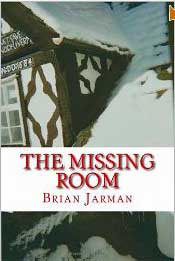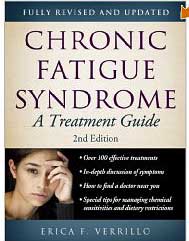

Ampligen Whacked By FDA Advisory Committee

Hemispherx started off the day with a strong presentation with Dr. Bateman stating she had found that Ampligen was safe and effective in a clinical setting but with a highly critical panel citing multiple irregularities and focusing on design changes in midstream it was quickly clear that Hemispherx was fighting an uphill battle.
It didn’t help that the panel leader stated she would never approve the drug without much more safety data (think big, big studies), and cut Hemispherx representatives out several times in the all important discussion period,
With Friends Like This ….Given the old studies and the problems with the data we knew the biostatisticians were going to be all over the drug, and that it would be up to ME/CFS professionals to emphasize how desperately the drug was needed. With the exception of Patient Advocate and CFSAC member Alaine Perry, however, they did no such thing. Gailen Marshall (CFSAC) demonstrated that his feet were on the ground when he voted, thankfully, for Ampligen at every opportunity but this at times very convincing speaker was unfortunately quite quiet otherwise. Dr. Komaroff and Dr. Unger, on the other hand, might as well have been from Mars for all the understanding they gave of the Community’s plight with both voting no on critical safety and efficacy questions and on the final safety/efficacy marketing question.
Both know another drug like this could take 20 years, both surely know Hemispherx doesn’t have the money for big new studies, and both know Ampligen been used for over 10 years by ME/CFS physicians without issue. Dr. Unger at least voted for Ampligen once but Dr. Komaroff voted against Ampligen on every vote.
Instead of our putative allies it was researchers/doctors with little known connection to ME/CFS who gave the drug the benefit of the doubt. It was incredible to watch…
One Win – With over 750 comments flooding their mailboxes, with the ME/CFS community overloading the agencies servers during the live webcast, and with ME/CFS patients, including several doctors, giving poignant testimony the FDA certainly got the message that this community needs assistance.
In Ampligen’s sole win the Committee voted 8-5 that Ampligen was safe enough for, get this, ‘marketing’ (ie treatment) purposes. Yes, the Committee voted that Hemispherx’s had not demonstrated that Ampligen was safe or effective but given the disorder’s needs, an easy majority (not including Dr. Komaroff but including Dr. Unger) of the Committee agreed that it was safe enough to give it a try. That does present an opening and we’ll see if that spurs anything at the FDA.
The FDA’s final decision will be announced Feb 2nd.
- Sign a petition requesting Ampligen’s approval here.
We’ll have a more extensive post on the FDA decision shortly.
- Dig Deeper: Research1st on the Meeting / Mindy Kitei on the Meeting /
Norway Nixes Big Rituximab Study

In a surprise, the Norwegian government fails to fund multi-center Rituximab study….but all is not over…
In a second downer treatment story, the Norway Research Council, after sending out nothing but positive messages for the past 6 months, abruptly turned around and rejected Fluge/Mella’s proposal for a multi-center Rituximab study. Patients and advocates were both astonished and outraged and even Parliament members got into the act.
With drug companies not even being close to being ready to step up to the plate on Rituximab and chronic fatigue syndrome, it’s probably going to take something like a federal grant to produce a definitive study on this critical topic. Since this US government doesn’t fund drug studies, Norway, with its ground-breaking Rituximab research was our best bet and this study could have given us some definitive answers. Fluge/Mella stated a study WILL go on regardless and they may have some help after all. In the fury of the advocates blast a government official backtracked a bit stating Norway was committed to helping out and emphasizing another funding opportunity was coming up in six months…..
Read more about what happened and other Rituximab news in the Rituximab Watch blog.
Newton’s Nuggets
ANS/POTS/ME/CFS
With her sixth study this year, Dr. Julia Newton is hammering out chronic fatigue syndrome studies at a rapid rate. In the latest study she found that ME/CFS patients with postural tachycardia syndrome (POTS – high heart rate upon standing) had more autonomic nervous system problems, more trouble standing and get this….were MUCH younger, had less fatigue and were less depressed than ME/CFS patients without POTS.
The younger age finding was intriguing given that Dr. Natelson believes some forms of orthostatic intolerance may ‘evolve’ over time to other forms in chronic fatigue syndrome.
The ANS/Sjogren’s Connection
Dr. Newton has been focusing on an autoimmune disorder, Sjogren’s Syndrome, that mostly effects women and has high rates of fatigue. Interestingly, she’s also finding impaired autonomic nervous system functioning in that disorder and although it appears the type of the dysfunction is a bit, increased heart rate is associated with fatigue in both disorders.
The Fatigue/ANS/HIV ‘Connection’
That’s not all. Despite antiviral treatment and good immune functioning, Dr. Newton found that the average HIV patient suffered from ‘excessive fatigue’ according to the Fatigue Impact Score . (We feel for them but their average fatigue score (40) was less than half the average ME/CFS patient score (90) which put the ME/CFS patients in the ‘severe’ fatigue category (>80).
The striking thing about this study was that fatigue was not associated with immune function or viral load or even if the HIV patients were on their HAART antiviral treatments. Instead it was associated with past use of a drug (dideoxynucleoside analogue (d-drug)), a metabolic problem and most significantly (p<.0001) with orthostatic symptoms (problems standing).
As she ploughs her way through a number of different disorders Dr. Newton appears to be demonstrating fatigue has autonomic nervous system roots.
Mislabeling Medical Disorders as Mental Illnesses!
Now who would do such a thing? The fifth edition of the Diagnostic and Statistical Manual of Mental Disorders (DSM-5) would, according to former DSM IV chair, Dr. Allen Francis.
The 11th reason Dr. Frances believes the DSM 5 overhaul will do more harm than good is none other than its tendency to mislabel medical illnesses as mental disorders. Calling ME/CFS advocate, Suzy Chapman’s critique of the new Somatic Symptoms Disorder section that has got ME/CFS advocates in such a tizzy, “devastating andcompelling”, Dr. Francis stated “It is crucial that DSM 5 tighten its over-inclusive wording to prevent what could otherwise be the wholesale dismissal of real medical symptoms as psychiatric illness- leading to missed diagnoses, incorrect treatment, stigma, and patients understandably feeling greatly misunderstood.”
Check out Dr. Frances embrace of Suzy Chapman’s argument regarding chronic fatigue syndrome in Psychology Today here.
Lets support Dr. Frances blog by getting it more traffic. The page has over 13,000 hits and over 250 comments. Let’s get it to 15,000 hits by the end of the year so he can show the American Psychiatric Associaton how much interest there is in this area (and how their proposed revisions stink). Simply click here to visit the blog and leave a comment.
CFIDS Association Wins Sanofi Competiton!
The CAA in conjunction with the Genetic Alliance and a Breast Cancer and Psoriasis Foundation beat out hundreds of other proposals to win the top prize and $300,000 in the Sanofi Competition. They will use the money to create a ‘a comprehensive, crowdsourced, cross-disease registry to help accelerate translational research for over 1,000 diseases.’ Sanofi will assist them in the project.
If this is what I think it is it could be a big deal. President Sharon of the Genetic Alliance stated the registry would greatly open up access to data to researchers across disease boundaries. She stated “… right now, this data is in silos and is not easily accessible to researchers. By creating a patient-centered research network… people will be empowered to participate in their own health and can contribute data to advance the development of disease treatments.”
If this means researchers from other disciplines have more access to ME/CFS patients and their data this could mean ME/CFS patients getting into all kinds of interesting studies. That in itself would considerably accelerate research for this disorder.
With the CAA’s embrace of the “Open Science” movement which seeks to produce breakthroughs in medical research using increased data sharing, this project was right up their alley.
The CAA placed another proposal in the top four at Sanofi which didn’t make it into the top two winners but did bring the CAA a $25,000 prize and a great deal of attention. Placing two projects in the top four in a competitive competition like this is good news for chronic fatigue syndrome and the CFIDS Association.. ME/CFS gets good exposure and gets associated with an organization that’s obviously got its act together in the research arena… Congratulations to the CAA team.
Banbury? Banbury? Banbury? I’ve Heard That Name Before…..
Some 35+ researchers gathered for a three day think tank on all things ME/CFS courtesy of the CFIDS Association of America and the NIH in October at Banbury. That’s a pretty significant thing to have happen but for some reason little was heard afterwards…We know the participants present on topics, tear pieces in each others work in acts of creative destruction – allowing new insights and paradigms to appear, of course, .and then get tipsy over dinner. Yes, it sounds exciting in a geeky kind of way…but what actually happened? I asked CAA Research Director Suzanne Vernon if we were going to hear anything about the latest Banbury Meeting….and she said we’d learn more in the beginning of the year.
ESME Closes It’s ‘Doors’
It’s tough to be a volunteer non-profit for ME/CFS and ESME, the European Society for ME, is closing its ‘doors’. ESME, which was created by ME/CFS professionals, had grand plans including Think Tank meetings, seminars and doctor training workshops but failed to raise enough money to produce them.
ESME’s donations will go to help fund a Rituximab treatment trial for ME/CFS.
A Different ‘Toolkit’: CFS Recovery Project Debuts
Johannes Starke is a much, much improved ME/CFS patient who’s beginning to share how it happened and providing tools he’s found helpful. He’s focusing on mind/body stuff – which I’m always, given my rather agitated state, am always interested in (if not particularly good at :)).
His blog on the Stillness Buddy introduced a tool that can help stop the energy drain that so often accompanies computer use and can even turn the computer into an energy enhancing tool.
Hi blog on ‘Agitated Exhaustion‘ gave simple tips on how to turn down the seemingly agitation sometimes present in this disorder, and to reintroduce calm (calm??) and wellness into our lives. Doing this kind of work takes practice but I find it can help and given the stress response problems the research indicates are present, I’m not surprised..
Most recently Johannes provided a guided meditation to use when the holiday blues strike.
If mind/body stuff intrigues you and/or you’re looking for tools to relax and ‘de-stress‘ Johannes blog looks like its going to be the place to go.
- Dig Deeper: CFS Recovery Project
Massive Book…Massive Accomplishment
The disclaimer says Chronic Fatigue Syndrome: A Treatment Guide, 2nd Edition “is not intended as a substitute for medical care.” and, of course, no book can substitute for the care of a ‘qualified clinician’ but to put it bluntly, there’s so information in Erica Verillo’s ME/CFS tome its hard to imagine that even the most well informed doctors would not get something out of it.
Well reviewed by some some of the biggies in the field, this downloadable ”kindlebook’..(you can download it to your PC) covers treatments, protocols, theories…it’s a huge accomplishment and, at $2.99 a shot, is incredibly affordable. It’s clear that Erica Verillo wants to get the word out..
We’ll have a fuller review later. In the meantime check it out here.
The Missing Room: ME/CFS A Murder Mystery Book

One reviewer said “I loved it. It’s a fine novel, very well plotted, full of character, and I couldn’t put it down. Marvellous about ME.” It’s available for download or in print on Amazon.com in the US or the UK









Yay, the Buzz is back! Thanks, Cort.
A question on the Ampligen votes: I don’t quite get the difference between these two votes/questions. How can more committee members think the safety profile is adequate than think safety has been adequately assessed?
– Has safety been adequately assessed? – No: 9; Yes: 4
– Is the safety profile adequate for approval? – No: 5; Yes: 8
(see the votes at: http://www.research1st.com/2012/12/27/fda-panel-votes/ )
I love that Kim got all the votes up there….From what I’ve heard its a very unusual set of questions…I think it came down to the fact that people with ME/CFS are so in need that 8 of the commmittee members (but again not Dr. Komaroff, which I just cannot get over :)) felt that even if safety was not proven to the FDA’s standards, it was proven enough to give the drug to patients…
I think that does leave Hemispherx and the FDA an opening…to conditionally approve the drug, limit the type of patients that can get it and then do more studies. Hopefully that’s what will happen.
Hi Cort,
Thanks for sharing the buzz about my site, CFS Recovery Project!
I also also appreciate the other info you shared in the buzz. I admire how much information you’re able to comprehend, distill it down to the essentials, and share with the CFS community.
Cheers,
Johannes
Thanks Johannes…I’m looking forward to learning more techniques and watching your site evolve. Good luck with everything..
Thanks for this – particularly looking forward to reading more about the FDA decision on Ampligen.
I tried to access Mindy Kitei’s article on that via the link provided but can’t get to cfscentral at all – it appears to require an invitation from Mindy via some sort of Google/blogger thing.